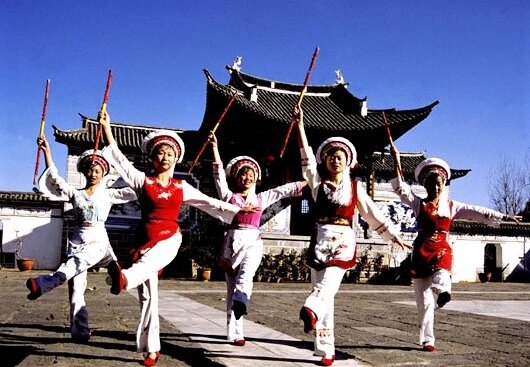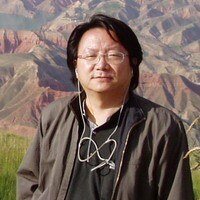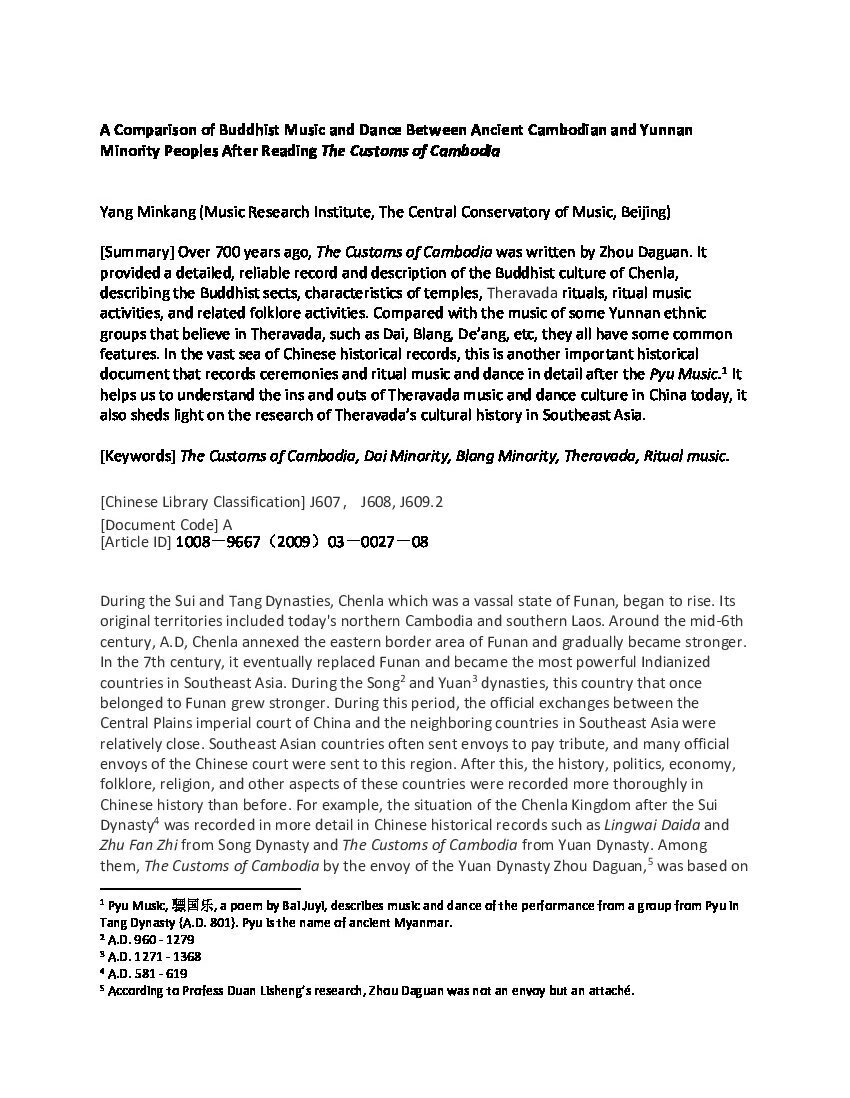从《真腊风土记》看古代柬埔寨与云南 少数民族佛教乐舞 | A Comparison of Buddhist Music and Dance Between Ancient Cambodian and Yunnan Minority Peoples
by Minkang Yang & Angkor Database
A fascinating study on Khmer and Yunnan minority interconnection through music and dance

- Publication
- 南京艺术学院学报 JOURNAL OF NANJING ARTS INSTITUTE | ADB Documents (with thanks to Pascal Medeville)
- Published
- January 2009
- Authors
- Minkang Yang & Angkor Database
- Pages
- 25
- Languages
- English, Chinese
pdf 385.6 KB
Ethnomusicolgist Yang Minkang re-read the famous account by Zhu Daguan, Customs of Cambodia, to study what has survived among contemporary ethnic minorities in Yunnan (South China) from the Chenla (Zhenla) traditions.
The similarities are striking. For instance, the pre-wedding ceremony described by Zhu Daguan (and even earlier in the Book of Sui) includes the chanting of this blessing for the maiden: “May you have someone who wants to marry you, may you marry hundreds of husbands in the future.” The author notes: “According to the similar customs of the Dai and Blang minority today, this [exact same chanting] should be regarded as a prayer chanted by the parents and elders in the birth ceremony of the girl, such as prayers of the Dai people.”
The author also analyzes the use of music and dance in various ceremonies among ethnic minorities who share the Theravada Buddhist traditions. He also describes traditions still in use among ethnic Jarai or Pyu people in today’s Northeast Cambodia, such as the “love hut” for the sexual initiation of teenagers.
Beyond musicology, the study gives us new perspectives on the spread of Theravada Buddhism in a large area including parts of Southeast Asia and Southwest China. The chen-t’an practice (deflowering, sexual initiation of the teenage girl by a monk or a Tao priest), a tradition that had shocked Chinese visitors of Chenla (and many Western orientalists), is also analyzed in detail.
Full title: A Comparison of Buddhist Music and Dance Between Ancient Cambodian and Yunnan Minority Peoples After Reading The Customs of Cambodia
English version by Lin Bo
Photo: Bai (白族) dancers — chinadiscovery.com
Tags: music, dance, China, Yunnan, Theravada Buddhism, ethnology, ethnomusicology, sexuality
About the Authors

Minkang Yang
Yang Minkang 杨民康 (1955) is a Chinese ethnomusicologist specializing in minority musical forms (he belongs himself to the Bai 白族 East Asian ethnic group native to the Dali Bai Autonomous Prefecture of Yunnan Province, one of the 56 ethnic minorities officially recognized by China).
Researcher and teacher with several Chinese institutions, including the Music and Dance Department of the Minzu University of China, the Musicology Department of the Central Conservatory of Music, and the Music Department of the Chinese University of Hong Kong, a Doctor of philosophy, he served as Assistant Director of the National Music Research Office and was a a visiting scholar at the Sydney Conservatorium of Music of the University of Sydney in Australia.
A member of The International Council for Traditional Music (ICTM), he was also a distinguished researcher at Shanghai University Music Anthropology E‑Research Institute, academic committee member at Shanghai University Humanities and Social Sciences Key Research Base Chinese Ritual Music Research Center, guest researcher at Northwest National Music Research Center of Xi’an Conservatory of Music, guest/part-time professor at Shanghai Conservatory of Music, Music School of Minzu University of China, Film and Television Art School of Communication University of China, School of Arts and Design of Yunnan University, Yunnan Arts University, Music School of Hebei Normal University, etc.
Selected Publications:
Chinese Folk Songs and Rural Society, 1992 (First prize of the 3rd Beijing Philosophy and Social Science Outstanding Scientific Research Achievement Award)
Chinese Folk Song and Dance Music, 1996.
Taoist ritual music of the Yao nationality in Yunnan, 2000
Bayeux Praise, Music for the Festival Ceremony of Dai Nationality’s Theravada Buddhism, 2003 (Second prize of the 2nd Cultural Art Science Outstanding Scientific Research Achievement Award by the Ministry of Culture)
A Comprehensive Collection of Research Documents on the History of Chinese Music in the 20th Century, Song and Dance Music Volume, 2006
Seeking for the Rhyme of Buddhism, Investigation on Buddhist Music and Folklore of the Dai Nationality’s Anju Festival in Xishuangbanna, 2007
Introduction to Musical Ethnography Method, 2008.
Localization and Modernity: A Study on the Christian Ritual Music of Yunnan Minority Nationalities, 2008
Traditional Music of Chinese Minorities (Co-Editor)

Angkor Database
Angkor Database — មូលដ្ឋានទិន្នន័យអង្គរ — 吴哥数据库
All you want to know about Angkor and the Ancient Khmer civilization, how it keeps attracting worldwide attention and permeates modern Cambodia.
Indexed and reviewed books, online documentation, photo and film collections, enriched authors’ biographies, searchable publications.
ជាអ្វីគ្រប់យ៉ាងដែលអ្នកទាំងអស់គ្នាចង់ដឹងអំពីអង្គរ, អរិយធម៌ខ្មែរពីបុរាណ, និងមូលហេតុអ្វីដែលធ្វើឲ្យមានការទាក់ទាញចាប់អារម្មណ៍ពីទូទាំងពិភពលោកបូករួមទាំងប្រទេសកម្ពុជានាសម័យឥឡូវនេះផងដែរ។
Our resources include a physical library library at Templation Angkor Resort, Siem Reap, Cambodia.
email hidden; JavaScript is required

